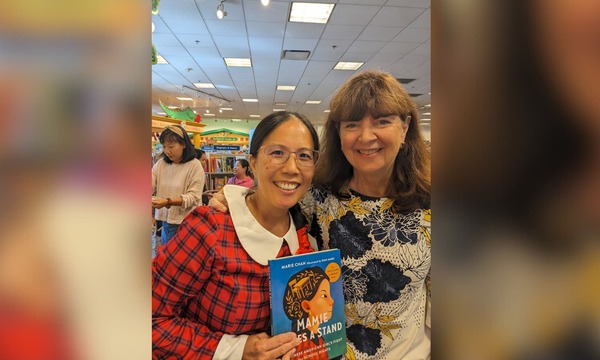Nine Biola journalism students set out to change others lives in the Dominican Republic during Spring Break through capturing photos and in turn the youth captured their hearts. The trip became more than units earned towards a future graduation date and a mission trip. Their lives were changed significantly.
Biola journalism students submitted a video news report on their photo mentoring trip in the Dominican Republic to CNN News iReport. The video the students created was published and they were contacted by CNN editors shortly after. Watch the video.
Biola University’s student newspaper, The Chimes, reports the full story:
Nine students, one professor, seven days and one city. Stories were told and lives were changed.
Over spring break, nine Biola journalism students partnered with International Youth Initiative on a weeklong trip to the Dominican Republic for the Cross Cultural Journalism class. There, they mentored 17 young adults between the ages of 13 and 21 in the art of photography while documenting their lives with the intent of creating relationships in the communities of Capotillo and Los Tres Brazos in Santo Domingo. It all culminated at the end of the trip when the youth center El Refugio was turned into an art gallery, displaying work of the Dominican youth and Biola students through posters and a video.
The Biola team found a culture that quickly accepted them as family. But underneath this friendly culture, they discovered crime and a corrupt government struggling with rolling blackouts and unsafe water. Because of these circumstances, Dominicans have found insurmountable faith and passion for God.
“It’s weird with that sense of urgency spiritually and the fact that they are like the most relaxed people in the world,” said team member freshman Charissa Standage on the dichotomy of the people.
Sitting in on a youth night, the team witnessed a flourishing ministry using rap and pantomime that broke cultural barriers.
“I think they know how to reach the youth,” said sophomore Jacob Frischknecht. “I feel that it’s so much simpler there ... Whereas here it’s just so complicated.”
Many students on the team came away with so much more than expected. Junior Sarah Grunder found that the trip encouraged her walk with God.
“Sometimes I get frustrated with how America lives as a church,” Grunder said. “It was encouraging to see that its possible to live how I think God wants us to live as Christians.”
This trip was one of the first of its kind from Biola, allowing journalism students to use their major in creating relationships across cultures. With the continually changing audience and state of journalism today, the trip was a great encouragement to show new ways in which the major can impact the world.
“(The trip was) an excellent way to get you to invest in another culture on a ministry level but also to give opportunity to mentor and train someone else...which helps to strengthen your own skills,” said journalism professor Tamara Welter, who accompanied the students on the trip.
The class also focused on teaching students how to be leaders by mentoring others to give back to the worldwide community.
“Developing students at Biola with a missions heart with a perspective that is global contributes to God’s purposes in their individual lives and also in his desire for ministry around the world,” Welter said.
The students were given the opportunity to document life in the Dominican Republic, but were also given the opportunity to give the youth the skills necessary in telling their own story.
But the trip was more than just missions work, according to senior Emily Agenjo.
“We’re not a group that comes down to get heaven points,” she said. “The difference is we came to know these people ... These people showed me more about God then I could ever show them about God. They know more about what it is to just live life.”
“I don’t want to be back. I didn’t want to leave,” said senior Sarah Sunderman, because of the deep relationships that were created.
The Biola students experienced a new perspective on life that opened their eyes to how different people in the world live.
“My mind is still in the D.R., and it’s really hard to make the transition back surrounded by all these people who look the same to me,” Frischknecht said.
For him, the experience opened his eyes to see the passion of Dominican youth ministry, their contentment and the way they live life.
The youngest student the team worked with was Manuel Gomez, 13, who was mentored by Agenjo. At the end of the week he shared with her what he thought the best part was.
“His favorite thing of the experience with someone was that he was drowning [in what he had to share] and finally had the chance to let it all go,” she said.
There is no doubt that the journalism department will facilitate another class like this, according to Welter. Currently back in the states, the class is planning to send back point and shoot cameras for the students to keep, perhaps even hand delivering them to those who have changed their lives. Any donations would be very much appreciated in giving the Dominicans a voice through photography.
Written by Karissa Tse, Chimes Reporter for Biola University’s student newspaper,The Chimes.
For more information, contact Jenna Bartlo, Media Relations Coordinator. Jenna can be reached at (562) 777-4061 or through email at jenna dot l dot bartlo at biola dot edu
 Biola University
Biola University.jpg)
_(1).jpg)

.jpg)